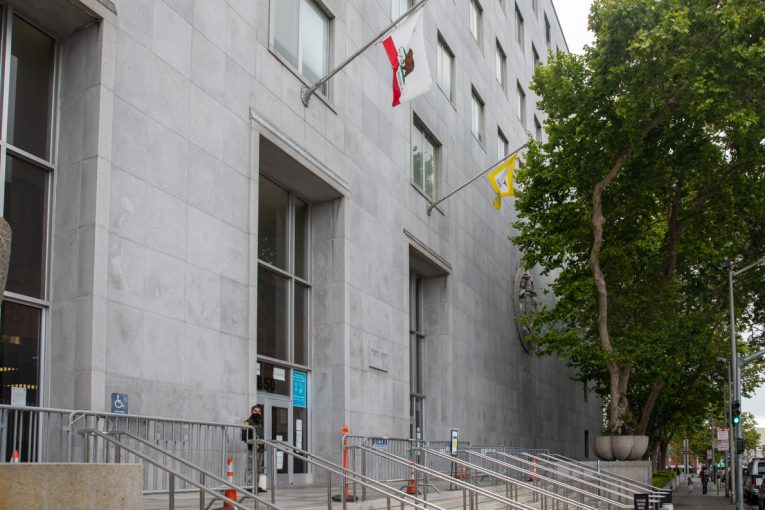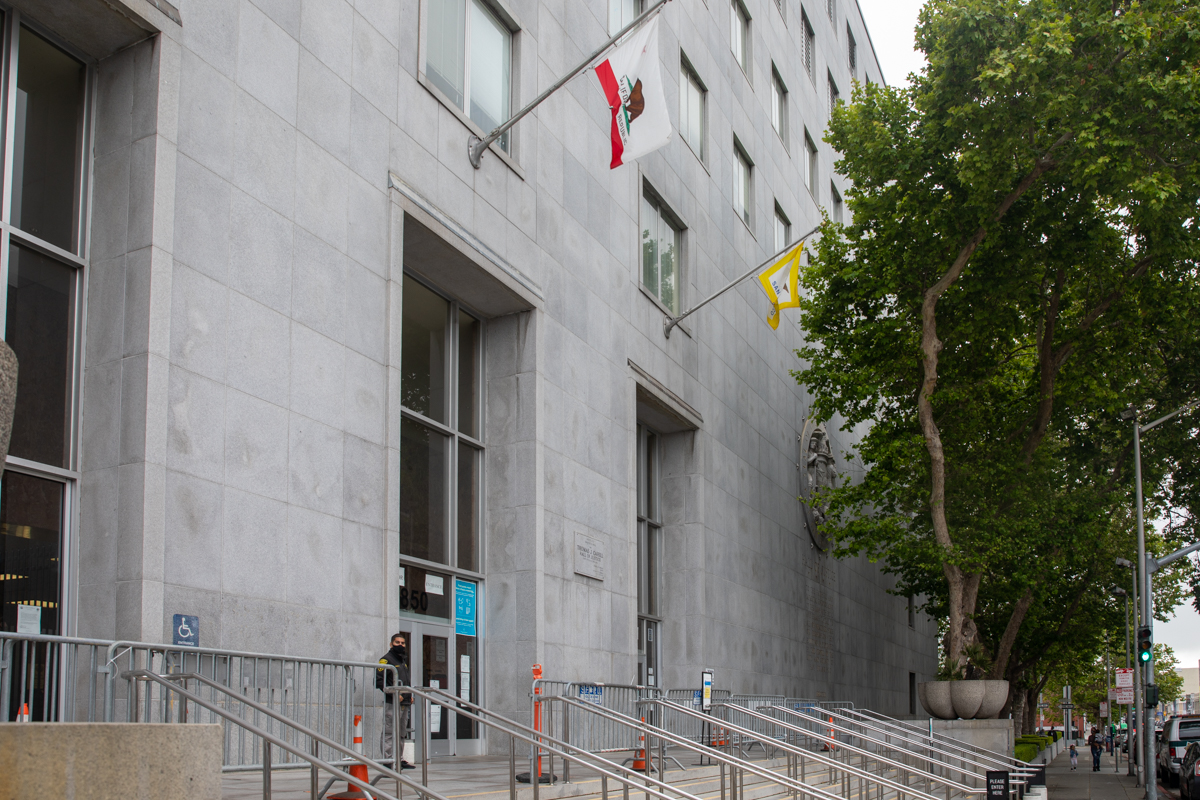

By David M. Greenwald
Executive Editor
San Francisco, CA – A week after hearing oral arguments on a motion disqualify the San Francisco DA’s Office from prosecuting the McAlister case pursuant to PC section 1424, Judge Brian Farrell denied the motion.
In a statement, Deputy Public Defender Scott Grant expressed disappointment in the ruling.
He said, “It’s disappointing that the judge in this case did not grant the motion, but we look forward to defending Mr. McAlister at trial. We will remain vigilant in watching for any additional prejudicial actions by the DA or her office with regard to this case.”
Previous: SF Judge Hears Motion to Recuse DA’s Office in McAlister Case
Superior Court Judge Brian Farrell listened to arguments from Deputy Public Defender  Scott Grant, representing Troy McAlister, in a motion to disqualify the San Francisco DA’s Office from prosecuting the case pursuant to PC section 1424.
Scott Grant, representing Troy McAlister, in a motion to disqualify the San Francisco DA’s Office from prosecuting the case pursuant to PC section 1424.
Judge Farrell repeatedly questioned the public defender on what the conflict was that arose which necessitated the DA’s office be recused.
The motion filed earlier in January was filed “on the grounds that Brooke Jenkins’ personal and political motivations have undermined her and her office’s ability to prosecute this matter fairly and impartially.”
The motion alleges that the DA “improperly accessed Troy McAlister’s criminal history and case documents, advocated for the recall of Chesa Boudin using Troy McAlister’s name and case, continued publicly commenting on Troy McAlister after being appointed District Attorney, fundraised and campaigned using Troy McAlister’s name, and continues to fail to admit to improperly accessing Troy McAlister’s case information and criminal history.”
But Judge Farrell asked, assuming the allegations are true, how do these arise to a conflict?
“I did not see what the conflict actually is here,” the judge pressed.
Grant acknowledged that, taken individually, each of the factors may not rise to a conflict.
Instead, he argued when taken as a whole, “the totality of the circumstances” and that the “conflict is multi-faceted” which amounts to a personal commitment, a political calculation in pressing for the recall, the fact that she was appointed at least in part based on this case, she campaigned on it, and that combined this produced a divided loyalty between her personal ambitions and her professional duties.
At the core of this argument is alleged misconduct when Jenkins improperly accessed the McAlister rap sheet and then used her work email to forward police reports and a rap sheet related to the vehicular homicide suspect to then-fellow prosecutor Don du Bain.
Grant argued both were on the verge of resigning from the office, neither was assigned to case, and neither had a professional interest in the matter.
Grant argued state law purportedly prohibits the dissemination of records such as rap sheets to people who aren’t authorized to receive them for official purposes.
Grant acknowledged that misconduct alone doesn’t present the conflict. Here the conflict exists because Jenkins never acknowledged or explained her conduct and therefore “cannot be trusted to uphold her obligations.”
Grant argued that she arguably committed a crime when she did that and yet there has never been an attempt to remedy the situation, there is no ethical wall, there is no disclosure, the only reason he found out about it was a redacted PRA.
Judge Farrell asked Grant for his Exhibit A example, to which Grant responded that there was no one issue, it was “the pervasiveness of the comments” and “how often that they occurred” and her insistence publicly that McAlister should “not have been released.”
Judge Farrell noted that the case of Scott DeKraii out of Orange County did not seem to apply in this matter. There the DA’s office was disqualified because of the pervasive misconduct by the Orange County Sheriff’s Office in using jail house informants and not disclosing the information to the defense.
The judge believed more on point was the recent case out of San Luis Obispo, People v. Lastra, where the DA there was prosecuting Black Lives Matter protesters including Tianna Arrata.
The judge noted in Lastra the legal point was based on the authority of the trial court to disqualify the DA’s office and that the decision by the trial judge was due to the DA writing in a right wing blog justification for the charges and his wife using the case as a point of fundraising.
Grant argued that none of the cases he cited “had this volume of potential conflicts” which he cited as 7 to 8 points.
The San Francisco DA’s office was present at the hearing, but relied on the AG’s office, for whom Deputy AG Sharon Lockner appeared over Zoom.
The judge noted that Grant’s strongest argument is that the email occurred before her resignation and was never acknowledged by the DA nor explained.
Lockner was dismissive of the claims, arguing that Grant presumes misconduct. She argued that it was one DA sending a file to another. She said it was the burden on the defense misconduct and that it was something “extraneous to their official duty.”
The judge responded that they weren’t assigned the case and were in fact leaving the office.
Lockner responded, arguing that DAs are for purposes of cases “interchangeable.”
She argued, further, that even if there is misconduct “recusal is not the remedy for prosecutorial misconduct.”
She argued that it is only a remedy for potential future fair treatment and that there is no evidence that “Brady obligations wouldn’t be followed.”
She argued that there is no conflict here. Each incident cited by the defense does not amount to a conflict and if you add them up, they have not shown an actual conflict.
Lockner differentiated from Lastro, noting that in the BLM case, it tied the political beliefs against BLM to a charging decision. In this case, there is a violent crime, it is not a political prosecution.
Judge Farrell asked what if the bar says this was misconduct?
Lockner responded, “That doesn’t change our position.” She said, that the caselaw showed that disqualification is not the remedy for misconduct.
Grant countered the point that Lockner raised dismissing the misconduct. He noted that neither Jenkins nor DuBain had any role in the case at all. And he argued it was her failure to disclose and safeguard the process that necessitated disqualification.
Judge Farrell took the matter under advisement and set a February 3 date for rendering his decision.

